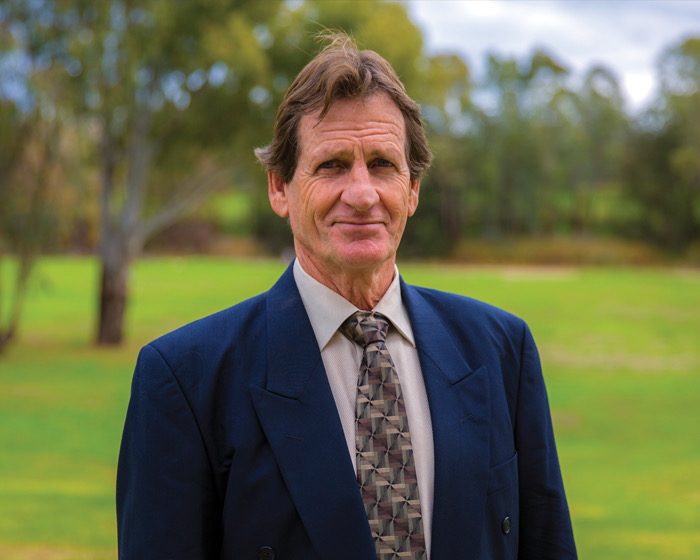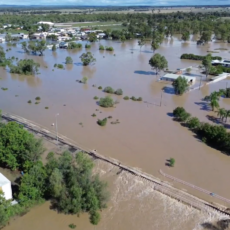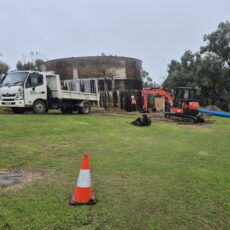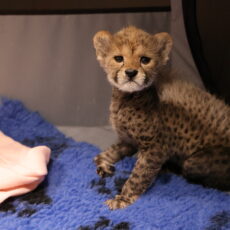Some of the agriculture industry’s finest growers, advisers, and innovators were recognised at the Syngenta Growth Awards, including Wee Waa farmer James Kahl who was announced a national winner.
“Of all the things I have achieved and are attached to my name, I didn’t do any of them by myself,” Mr Kahl humbly told The North Western Guide.
“What I’ve done well as a leader is surround myself with smart people and we get a lot of good stuff done that way.”
The Syngenta Growth Awards shine a light on the outstanding contribution and influence that growers, farm advisers and community leaders, from across Australia and New Zealand, have on the agricultural sector.
Seven national winners were selected for their exceptional work in one of the following categories: productivity, sustainability, community and people, and innovator.
Two individual judges’ choice awards were also presented at the Syngenta Growth Awards gala dinner held in December.
The awards were launched nearly 10 years ago, and managing director of Syngenta ANZ Paul Luxton said the 2023 national winners represented ‘the best of the best’.
“We’ve had another exceptional cohort of nominations this year, and it was incredibly hard for our judges to narrow it down to our final national winners,” said Mr Luxton.
“The depth of experience of our winners, and each of their incredible contributions to not only their communities but the wider ag sector, is deserving of the accolades coming their way.
“The winners range from legendary pioneers in the sector, to first- generation farmers paving the way for future generations.
“One thing they have in common is a passion for furthering the sustainability of the ag industry through their endeavours, which is more important than ever as we look at what the future of farming looks like.”
Syngenta’s Amy Clark presented a snapshot of some of Mr Kahl’s farming endeavours and achievements, so far, in a nomination video.
“James Kahl is a farmer based near Wee Waa, NSW,” said Ms Clark.
“Merced farming consists of 7500 hectares of winter and summer cropping in both dryland and irrigated scenarios, along with native and improved pastures for livestock.”
Miss Clark said without the Kahl and Hadley families, the cotton industry would not have been established and would not be what it is today.
“And who knows, we still may not even be growing cotton.”
She said a ‘standout point’ was Mr Kahl’s role and impact as chair of Cotton Seed Distributors for close to 15 years.
Mr Kahl was a fundamental part of the team that made decisions to ensure Australian cotton production continued to grow to become a world leader – nowhere else in the world do they grow the quality and yields that Australia produces.
Miss Clark said Mr Kahl and the Merced Farming team have “many strategies” that make them a worthwhile nominee.”
She explained they have practised over 30 years of no back-to-back-farming; following one of their properties being declared carbon neutral some years ago, the whole management system across all their farms is now certified carbon neutral; they ceased using anhydrous ammonia 25 years ago, recognising this was having a significant effect on microbial activity in their soils; they have not used insecticide on their cotton over the last three years, implementing IPM strategies.
“James is so very humble and recognises that there were a lot of people that helped him get where he is today,” said Miss Clark.
“James, thank you for everything you and your family have done for the cotton industry.”
When he was announced a national winner, Mr Kahl described his reaction as ‘stunned’.
The Wee Waa farmer said the opportunities he received just by being nominated were such ‘a good experience’ that he felt rewarded before he was even named a Syngenta Growth Awards national winner.
“There were some pretty cool people there, we’d spent the day together and there are networks that get built – I felt like I’d already had a really good experience,” said Mr Kahl.
Farming can be incredibly satisfying, especially in the good seasons, but it does take a special breed of person to persevere through the challenging times and produce positive results.
While some might consider a grower or grazier’s job description too tough, Mr Kahl couldn’t think of a better reason to get out of bed in the morning.
“I just love what I do, I have a lot of fun doing it – I get to call it work and then I get paid for it.”
Even though he was recognised in the sustainability category, Mr Kahl encouraged farmers to strive for more.
“By definition, sustainability is to maintain a performance and not go backwards, and that just isn’t good enough.
“The ag sector has to do a lot more than sustain,” he said.
“Sustainability is a very low bar; you need to be using innovation to do more with less.
“You’ve got to be able to get outcomes of improved productivity using less resources.
“If something doesn’t work – you just go in another direction and try again, you don’t walk away.
“And please don’t tell me that it can’t be done.”
Mr Kahl is known for generously sharing his knowledge and wisdom with others, and it’s an admirable trait that has been consistent amongst growers in the Australian cotton industry since its early days.
Most readers would be familiar with the pioneering partnership of Mr Kahl’s late father Paul and Frank Hadley who, together with their families, ambitiously packed up their homes in California’s San Joaquin Valley and headed for Wee Waa in the Namoi Valley to grow cotton in the 1960s.
The story of the Californians’ dream becoming a reality is legendary amongst locals. In 1961, the farming partners sowed the first seeds at ‘Glencoe’, Wee Waa and in 1962, harvested a successful cotton crop sparking the start of the modern Australian cotton industry.
The innovative pair didn’t just kick-start a new agricultural sector; with the support of their wives Norma Hadley and the late Jean Kahl, they helped to shape, enrich and significantly contribute to the growth of the Wee Waa community and its social fabric.
The Kahl family has continued to farm at ‘Glencoe’, and today, three generations of the family have been involved in running the farming operation.
While cotton remains the primary crop, Merced Farming also produces wheat and durum, mung beans and corn as well as producing Angus beef cattle.
The national winners in each of the four categories will be offered the opportunity to attend an international study tour next year and will also join the alumni of previous winners, who continue to connect, collaborate and add value to their local communities.
Other national winners of the Syngenta Growth Awards are listed below.
Productivity category: Edward (Ted) Langley a grower from Pine Hill Station, Bordertown, South Australia and Martin Lovegrove an adviser from Cleve Rural Traders, Cleve, South Australia.
Community and people category: Hamish Marr, a grower from Marr Farms Ltd, Methven, New Zealand and David Manktelow, an adviser from Applied Research and Technologies, Hawkes Bay, New Zealand.
This category recognises growers and advisers who make a leading contribution to their community, workers and fellow growers.
Innovator category: Fiona and Liam Mann from Eradu in Western Australia were recognised in the innovator category.
Sustainability category: Along with Mr Kahl of Merced Farming, Nigel Blieschke, an adviser from Torbreck Wines, Barossa Valley, South Australia, was recognised in the sustainability category. The category recognises growers and advisers who are committed to addressing industry issues to create a sustainable and profitable future.
Judges’ choice awards went to grower Darren Best from Silverback Farms in Toodyay, Western Australia and adviser Nick Bloor from the IVM Group, Varsity Lakes, Queensland.
To order photos from this page click here








